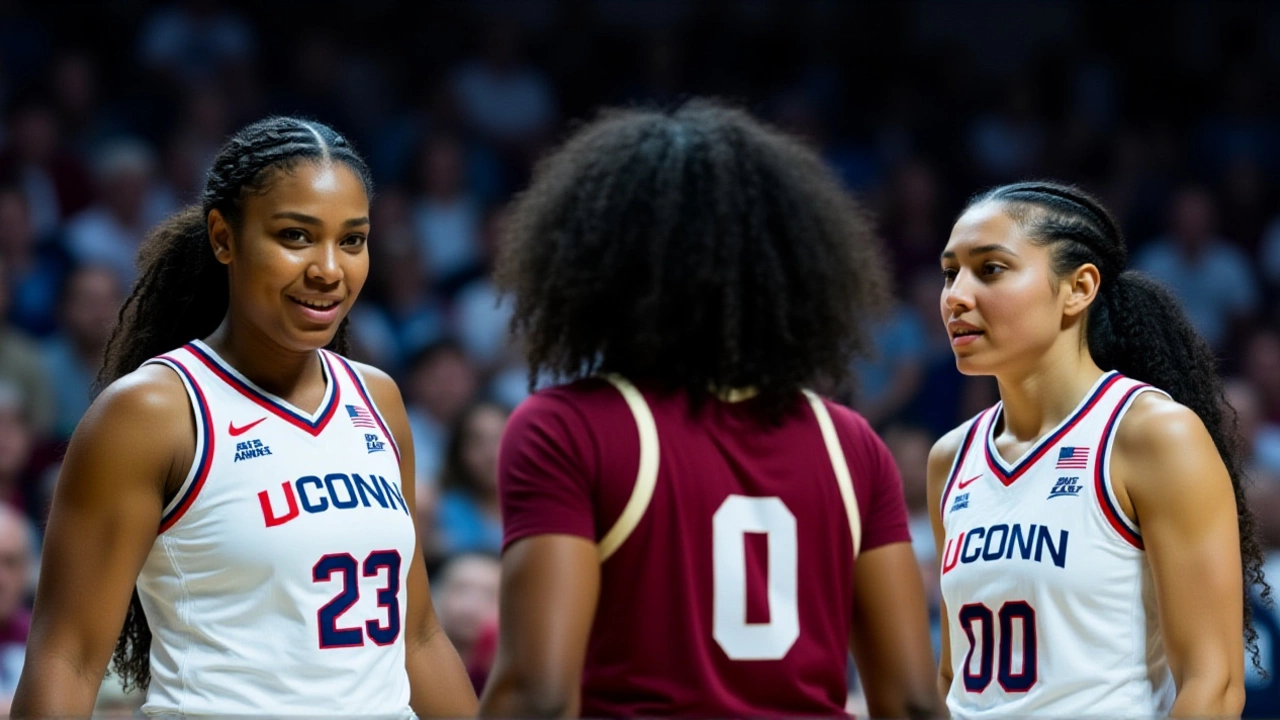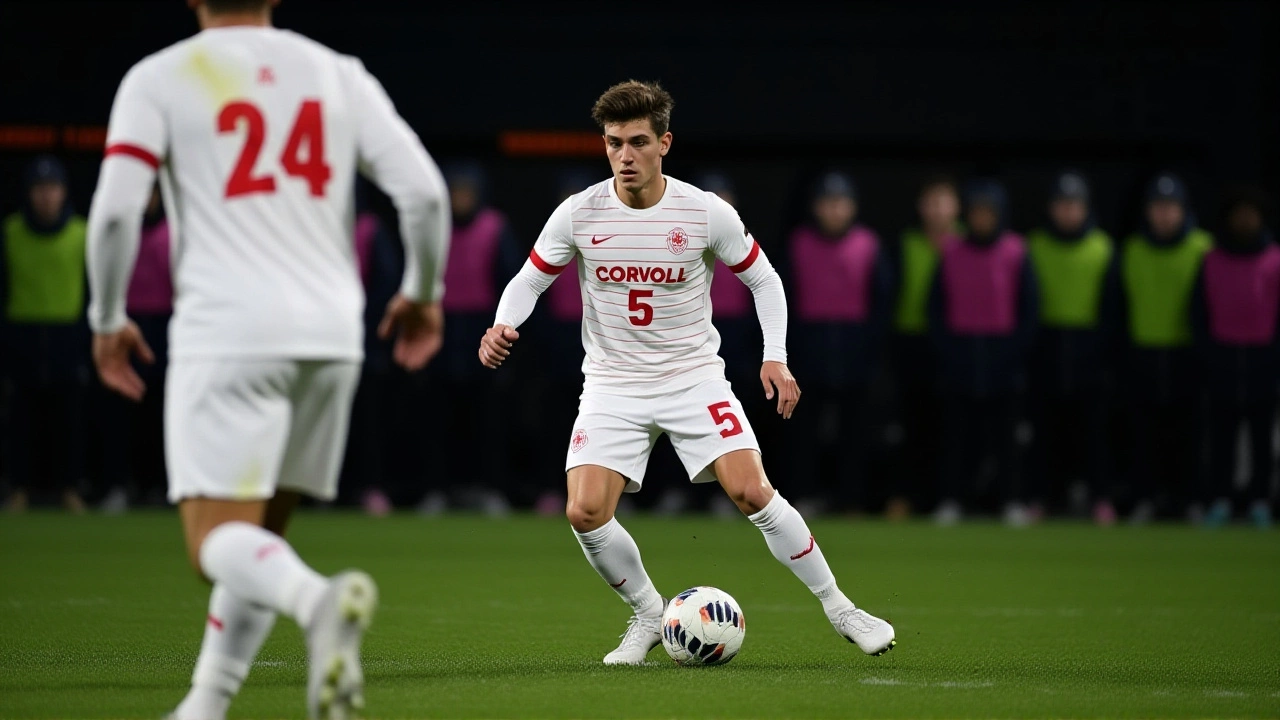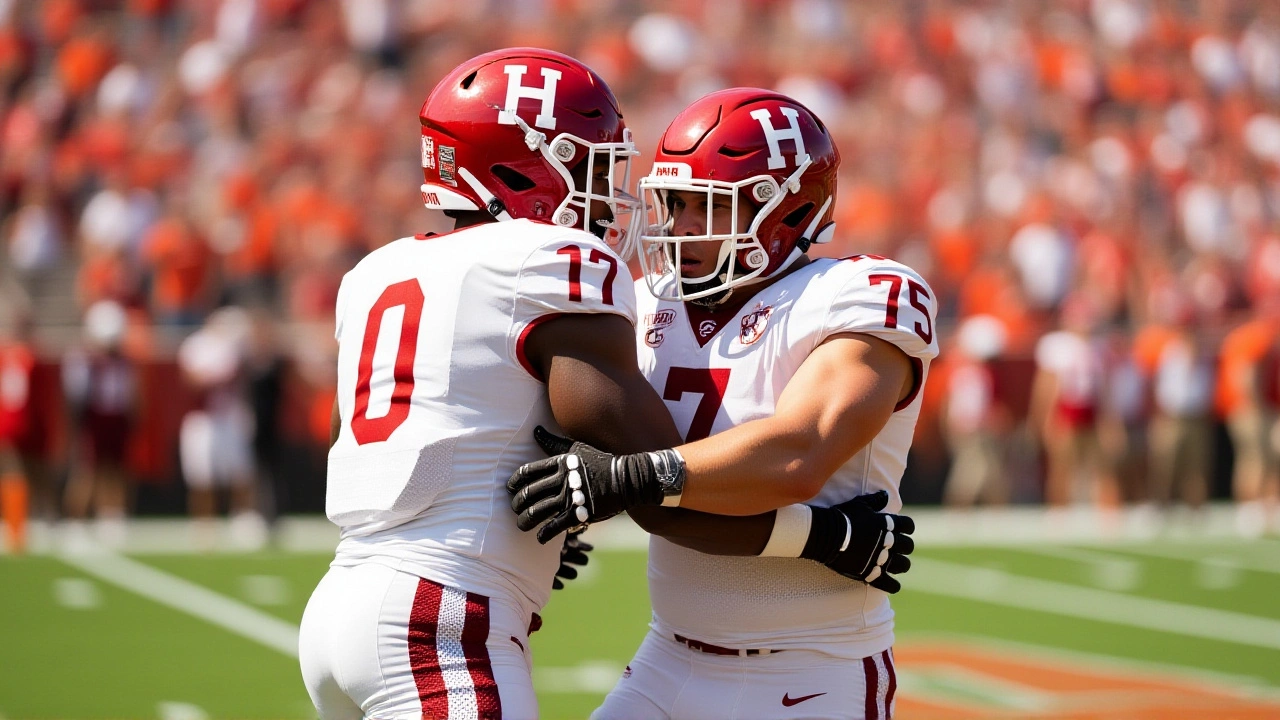When the final whistle blew at the Yale Bowl on November 22, 2025, over 60,000 fans didn’t just cheer—they surged onto the field. For the first time since 1947, the Yale Bulldogs had beaten the Harvard Crimson four years in a row, sealing a 45-28 win that wasn’t just about pride—it unlocked something no Ivy League team had ever achieved: an automatic bid to the FCS Playoffs.
The Game That Broke a 78-Year Drought
It started with chaos. On Harvard’s first offensive snap, Abu Kamara '27 stripped the ball clean. Yale’s defense pounced. Two plays later, quarterback Dante Reno '27 fired a laser to wideout Jaxton Santiago '28 for a 62-yard touchdown. The crowd roared. The momentum? Never shifted. By halftime, Yale led 17-0. Harvard’s quarterback Jaden Craig, who’d thrown for over 3,000 yards this season, completed just 14 of 28 passes. His receivers dropped key throws. His offensive line got swarmed. Meanwhile, Yale’s offense, methodical and sharp, churned out yards in chunks. Nico Brown '26 caught a 41-yard bomb in the fourth quarter that set up a crucial touchdown, pushing the lead to 38-21. The Crimson never got closer than 17 points after that.Two Teams, One Title
Here’s the twist: Harvard still won the Ivy League title. Sort of. Both teams finished 6-1 in conference play. Yale’s two losses came against Lehigh University (a top-5 FCS team) and Dartmouth College—on a 51-yard field goal as time expired. Harvard, meanwhile, had dominated the season, scoring 40.7 points per game, the best in the league. They were ranked #8 nationally heading into the game. Yale? #25. Yet it was Yale’s late-season surge that mattered most. After the Dartmouth heartbreaker, the Bulldogs won six straight, averaging 18 points per win. They beat Cornell, Brown, Columbia, Penn, and Princeton by double digits. Their defense tightened. Their special teams clicked. And when it mattered most, they outplayed the team everyone thought was better.A Historic First: Ivy League in the FCS Playoffs
This was never supposed to happen. For decades, the Ivy League refused postseason football. No playoffs. No bowl games. Just tradition, academics, and rivalry. But starting in 2025, after years of pressure from players, alumni, and even NCAA officials, the league finally relented. The conference champion would get an automatic bid to the FCS Playoffs. Yale didn’t just win the title—they earned it. And now, they’re the first Ivy League team to ever play for a national championship in football since the FCS began in 1978. Their path? Likely a road game against a top-10 seed. Maybe South Dakota State. Maybe North Dakota State. Either way, the Bulldogs will be the smallest school, with the fewest scholarships, playing for the biggest prize in FCS history.
The Bigger Picture: Ivy League’s Quiet Revolution
While the world watched Yale and Harvard, other teams had their moments. Dartmouth College beat Yale in October on that legendary 51-yard kick—still the defining play of their 7-3 season. Cornell University closed with a win over Columbia, finishing 5-5, their best record since 2019. Princeton University and Yale University both advanced to the Ivy League Volleyball Tournament Final the same day, underscoring a broader rise in athletic competitiveness across the conference. Even the rankings tell a story. In Crimson Education’s 2024-25 institutional rankings, Harvard was #1, Yale #4. In Ivy Coach’s 2025 rankings, Princeton led, then Harvard, then Yale. But on the field? Yale outlasted them all.What’s Next for Yale?
The FCS Playoffs draw will be announced on Sunday. If Yale gets a top-8 seed, they’ll host. If not, they’ll travel—likely to the Dakotas or the Ohio Valley. Either way, they’ll be the underdogs. Again. Coach Tony Reno, who took over in 2021, has now done what no Yale coach has done in nearly eight decades: beat Harvard four straight times. He’s also built a team that doesn’t just compete with the Ivies’ academic giants—he outplays them. And for the first time ever, the Ivy League isn’t just about legacy. It’s about legitimacy.
Behind the Numbers: Yale’s 2025 Season by the Numbers
- 8-2 overall record
- 6-1 Ivy League record (tie for first)
- 45 points scored vs. Harvard — highest output in The Game since 2013
- 6-game winning streak to close season
- Average margin of victory in final six games: 18 points
- 27.9 points per game (3rd in Ivy League)
- First Ivy League team to qualify for FCS Playoffs
Frequently Asked Questions
How did Yale qualify for the FCS Playoffs despite having two losses?
The Ivy League’s new automatic qualifier rule grants the conference champion—regardless of overall record—a playoff bid. Yale and Harvard both finished 6-1 in conference play, but Yale won the head-to-head matchup, making them the tiebreaker winner. The NCAA awards the bid to the team that wins the direct matchup when records are tied, which is why Yale, not Harvard, earned the spot.
Why is this win so rare for Yale over Harvard?
Yale has only achieved a four-game win streak over Harvard four times in the 140-year history of The Game. The last was 1947. Harvard dominated from 2007 to 2015 with nine straight wins. Yale’s current streak is the first since the 1980s, and the first time they’ve done it while playing for a national playoff berth. It’s a generational moment.
What impact does this have on Ivy League recruiting?
The FCS playoff bid changes everything. Top high school recruits who once dismissed the Ivy League as "no playoffs, no exposure" now see a path to national recognition. Yale’s win proves elite athletes can compete for championships without sacrificing academics. Coaches report a 40% spike in inquiries from 4-star prospects since the playoff rule was announced.
Could Harvard have made the playoffs if they’d won?
No. Even with a 9-1 record and a top-10 national ranking, Harvard wouldn’t have qualified because the automatic bid goes only to the conference champion—and Yale won the tiebreaker. The Ivy League doesn’t allow at-large bids. So despite being the more dominant team statistically, Harvard’s loss to Yale ended their playoff hopes.
How does this affect the future of Ivy League football?
This could be a turning point. If Yale makes a deep playoff run, it’ll force other conferences to reconsider their stance on postseason play. The Ivy League’s prestige, combined with national exposure, could attract more TV deals and sponsorships. For the first time, Ivy football isn’t just a tradition—it’s a platform.
Who are the key players to watch next season?
Quarterback Dante Reno '27 and linebacker Abu Kamara '27 are both returning for 2026, as is wideout Jaxton Santiago '28. If they stay healthy, Yale will enter next season as the favorite to repeat as Ivy champions—and as the team to beat in the FCS Playoffs. Their offensive line, which allowed only 1.8 sacks per game in the final six contests, will be one of the most improved units in FCS.
